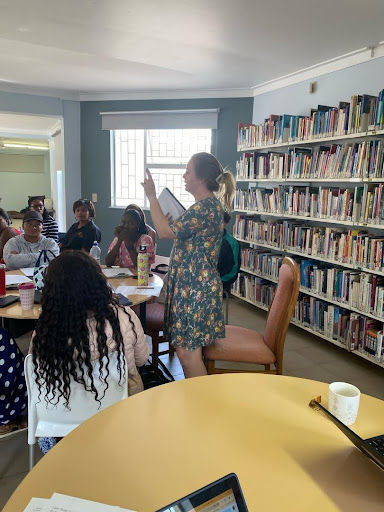Other people, with their differences, can also be right
- Windhoek International School
- Nov 24, 2023
- 3 min read
“Other people, with their differences, can also be right”: The IB’s framework and some helpful resources for having conversations about humanitarian crises and political conflict.

Dear Community,
This week, as we were clearing the dinner table, one of my children asked me a question I wasn’t quite prepared to fully answer: “Dad, which side are you on - Israel or Hamas?”
With young learners at a school that teaches through inquiry, I imagine that I am not alone among WIS parents and educators who are regularly asked questions that are difficult or impossible to answer. The International Baccalaureate provides a helpful framework for turning such questions into an exploration of how we can learn to live together, peaceably, on this earth.
Resources:
The Association of International Schools in Africa (AISA) just developed a helpful resource pertaining to the Israel-Gaza conflict. It has some good links for how to handle political, philosophical, or religious disagreements as they arise within our social, school, and professional contexts.
Also worth sharing is a blog post by the Head of IB MYP Programme Development which summarises why the high-minded notion that "other people, with their differences, can also be right" is central to the history and mission of the International Baccalaureate.
This article by the “Greater Good Magazine” of UC Berkeley provides six principles we can use when discussing humanitarian crises and global conflicts:
Tend to your own needs
Seek to understand more deeply and listen
Be humble and honest
Prioritise humanity
Help your children take compassionate action
Be a haven for children to navigate their emotions
Peacemaking at WIS: from Principles to Practice
While there is no need to seek out or inflame the diversity of opinions we hold within our learning community, there is also no need to avoid such conversations. Our WIS Principles and the IB Learner Profile serve as good guideposts for holding space for debates when they arise.
Our DP Coordinator and IB History Teacher Mr Rick Fitzpatrick recently held space for this, when he invited experts to speak with our Grade 12 students about the Arab-Israeli conflict and the consequential events prior to, on, and since Saturday 7th October. On Monday, an acclaimed Dutch Palestinian, Nabil Sahhar (and a former international school teacher), will present virtually the Palestinian perspective and provide our IBDP History students with some historical context. This follows from this past week’s virtual presentation by a WIS DP 2021 graduate Noam Babluki, an Israeli Defense Force soldier, who shared his recent combat experience in a besieged kibbutz and in Gaza.
Mr. Fitzpatrick shared with me that our students were able to engage respectfully and to ask direct and trenchant questions. I am always amazed by the insights of WIS students. When we hold space for them to lead conversations, they do so with a spirit of inquiry, an ability to embrace complexity, and a prioritisation of human rights.
We can be a haven in a volatile, uncertain, complex, and ambiguous (VUCA) world
By modelling humility, a spirit of inquiry, and principled respect for humanity and universal human rights, I am confident that our approach to education at WIS will create a more just and peaceable future for our world. When we understand the IB’s mission that other people with our differences can also be right, we embrace complexity and teach empathy and humility. We can then act with creativity and service. We do this one conversation or interaction at a time.
With appreciation,
Ethan Van Drunen
Director








Thank you for sharing these thoughts, Ethan. You are indeed not the only parent getting these questions and I have struggled a bit to find age appropriate resources to explain the conflict in more detail to my children. I am wondering if the issue is being approached by teachers in the lower grades? It is wonderful to hear that the older students are getting the chance to hear from people directly affected by the conflict. I take my hat off to these speakers for taking the time to share their insights and experiences.